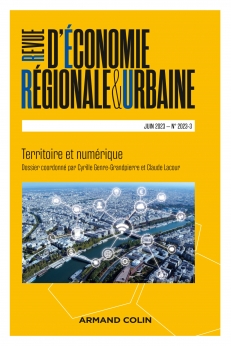
Revue d'économie régionale et urbaine (3/2023)
Pour acheter ce numéro, contactez-nous
Recevez les numéros de l'année en cours et accédez à l'intégralité des articles en ligne.
En l’espace de quelques années, des dizaines d’universités et de grandes écoles françaises ont entrepris d’étudier leur impact économique local. Ces études posent de nombreux problèmes, parfois rédhibitoires. D’un point de vue méthodologique, on ne sait pas mesurer les conséquences économiques à long terme de la formation, tandis qu’aucun consensus ne se dégage sur la méthode permettant de mesurer l’impact régional des dépenses (critique interne). De plus, nous montrons que l’usage du raisonnement contrefactuel sur lequel se fondent les résultats affichés est illégitime. Il y a donc une mystification, que nous interprétons comme le résultat de la véritable fonction de ces travaux, qui n’est pas d’apporter une connaissance mais de persuader de la rentabilité des universités dans un but performatif (critique externe).
In a few years in France, several dozen universities and Grandes Écoles have undertaken to study their local economic impact. These studies raise many problems, some of which are prohibitive, and some of which have been known for a long time. The first part of the paper is devoted to an internal critique. From a methodological point of view, we first study one aspect of the work of Biggar Economics, which is used by the ten largest French universities to measure their impact. It is recalled why the long-term economic consequences of training cannot be measured and therefore should not be measured. Furthermore, a very large variability in the results is observed, which calls for great caution in interpreting the results. This is partly due to the fact that there is no consensus on the method for measuring the local impact of university-related expenditure, especially in the absence of a regional input-output matrix. In the second part of the paper, we develop an external criticism. First, we show that the use of counterfactual reasoning on which these studies are based is not correct. Indeed, the definition of impact depends on illegitimate fictions. Most of the local economic impact studies of French universities are not rigorous and none is free from an abusive use of counterfactual reasoning. We interpret their proliferation over the last decade as the result of their performative vocation. In a context of territorial competition, their real purpose is not so much to know or evaluate as to persuade of the profitability of universities. There is thus a real mystification.